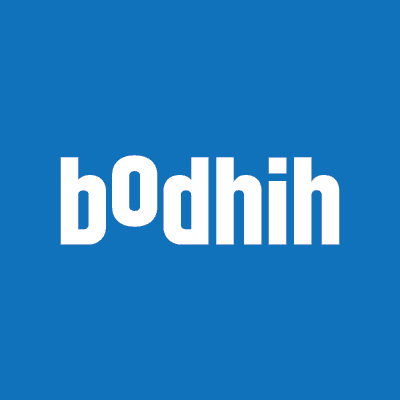Delivering Effective Performance Appraisals
Table of Contents
Performance Appraisals, Performance Appraisals Process
Effective Performance Appraisals Bodhih workshops focus on appraisals methods, power of feedback, the importance of performance appraisals and performance appraisals objectives.
Performance appraisals and Feedback is an important part of the communication process. It is needed to gauge if communication has had the intended effect or not. Human Resources are a company’s most vital currency and asset in the changing workplaces. The purpose of human resource management is to maximize the productivity of an organization by optimizing the effectiveness of its employees.
Performance Appraisals are part of the larger human resource management processes that are tasked with effective utilization of Human Resources, establishing desirable working relationships and maximum individual development.
At Bodhih’s performance appraisal workshops, the focus of learning is on the methods of monitoring employee performance to ensure that it is at acceptable levels. Besides providing a basis of pay, promotion, disciplinary action, performance appraisal information is essential for employee development since knowledge of results (feedback) is necessary to motivate and guide performance improvements.
Request For a Call Back
Effective Performance Appraisals Bodhih’s workshops focus on appraisals methods, power of feedback, the importance of performance appraisals and performance appraisals objectives.
Bodhih’s program on Performance Appraisals process training kick starts with facilitator led presentation, and flowcharts to build a detailed visual that paints the importance of performance appraisals. Learners through individual activity and group discussions are taken through the various stages of a performance appraisals process – Job description / Key Results Areas / Performance Standards TO Delegation / Empowerment / Coaching / Counselling TO Preparation / Place / Time / Meeting TO Action plans for Employees / Supervisor / Organization and Agreement.

Bodhih’s facilitators are seasoned professionals who create linkages between skills picked up in the workshops and then to apply them in participant’s current roles.
This is done through specific illustrations and analogies and is true for the next session at the Performance Appraisals program – Pertinent answers to the stakeholders
In this module of the performance appraisals methods, through facilitator led presentations and group discussions, participants are familiarised to the various questions and aspects that come up for attention. Staff members are to answer – what am I expected to do? How well am I doing? What are my strengths and weaknesses? How can I do a better job? How can I contribute more?
Bodhih’s workshop on Performance Appraisals objectives moves to the next item on stakeholder agenda – the supervisors themselves.
Performance appraisals methods begin with a baseline exercise.
Class participants who are supervisors in their organizations are provided with the following checklist. Bodhih’s Facilitators handhold the class in answering the questions – translate organizational goals into individual job objectives, and requirements, communicating expectations, diagnose staff’s relative weaknesses and strengths, and determine a development plan for improving job performance and ability utilization.
At Bodhih, Performance Appraisals techniques is a popular session that is part of a larger HR skills training suite.
The session draws richly from latest research done on 360 degree practices of performance appraisals with case studies centred on winning behaviours
The heart of Bodhih’s Performance Appraisals at work session lies in the powerful session that dissects the topic of common errors seen in the performance appraisals methods
Performance appraisals in organizations are detailed in the next session.
Led through a case study, and group discussions, class participants gather information on the various biases that can skew performance appraisals processes, namely, halo effect, horn effect, central tendency, strictness, leniency, Recency, performance dimension order, initial impression, spill-over effect, Status effect, Same as me, Different from me.
Bodhih’s facilitator uses individual reflection, group discussion and case studies to surface performance appraisal requirements. Learners need to practice steps are formalized, standardized, and as objective as possible. Care is taken to make the performance appraisals methods are as job related as possible. Role enhancements, job promotions, other opportunities are to be publicly cascaded across departments.
Performance appraisals are used to determine how an employee’s career progresses over time. This is understood in the next segment.
Through rich illustrations and real-life simulations, Bodhih’s class participants appreciate how to assess various situational variables as setting future goals, benchmarking Industry performances and linkages to performance ratings to compensation impacts. Finally, the Bodhih’s workshop on Performance appraisals approaches the nuts and bolts of documenting and agreeing on the performance appraisal discussions.
How would you gain from India’s best Performance Appraisals Process workshops at Bodhih?
Bodhih customizes its performance appraisals courses along the ADDIE model. Workshop experiences are analysed, designed, developed and delivered that are solution focused and include a range of blended training pedagogy such as role plays, group exercises, self-assessment tools, management games, individual activities, videos, case studies, facilitation, discussions and more.
In addition to the ADDIE model, the performance appraisal training takes advantage of the experiential adult-learning process of concrete experience – reflective observation – abstract conceptualization – active experimentation.
The edge in Bodhih’s Performance Appraisals in the workplace courses comes from researched industry learnings, current best practices and academic insights. The workshop takeaways ensure that learnings are grasped and applied at all levels within a company and its individuals. The long-term benefits are to institutionalise performance appraisals processes by embedding effective to-do lists, standard operating procedures, and formalizing the process across skills, levels and compensation grids.
What is Bodhih’s promise on effective performance appraisals systems training programs?
Managers across industries and functions and executive level participants who have attended Bodhih’s sessions on Performance Appraisals talk of the changed individual and team behaviours, namely, higher understanding of the process steps, the preparation needed for a successful discussion, and being cognizant of the mental biases that can derail a performance appraisal discussion.
Quick Links
Newsletter
Copyright © 2018 All rights reserved
Privacy Policy
Terms
